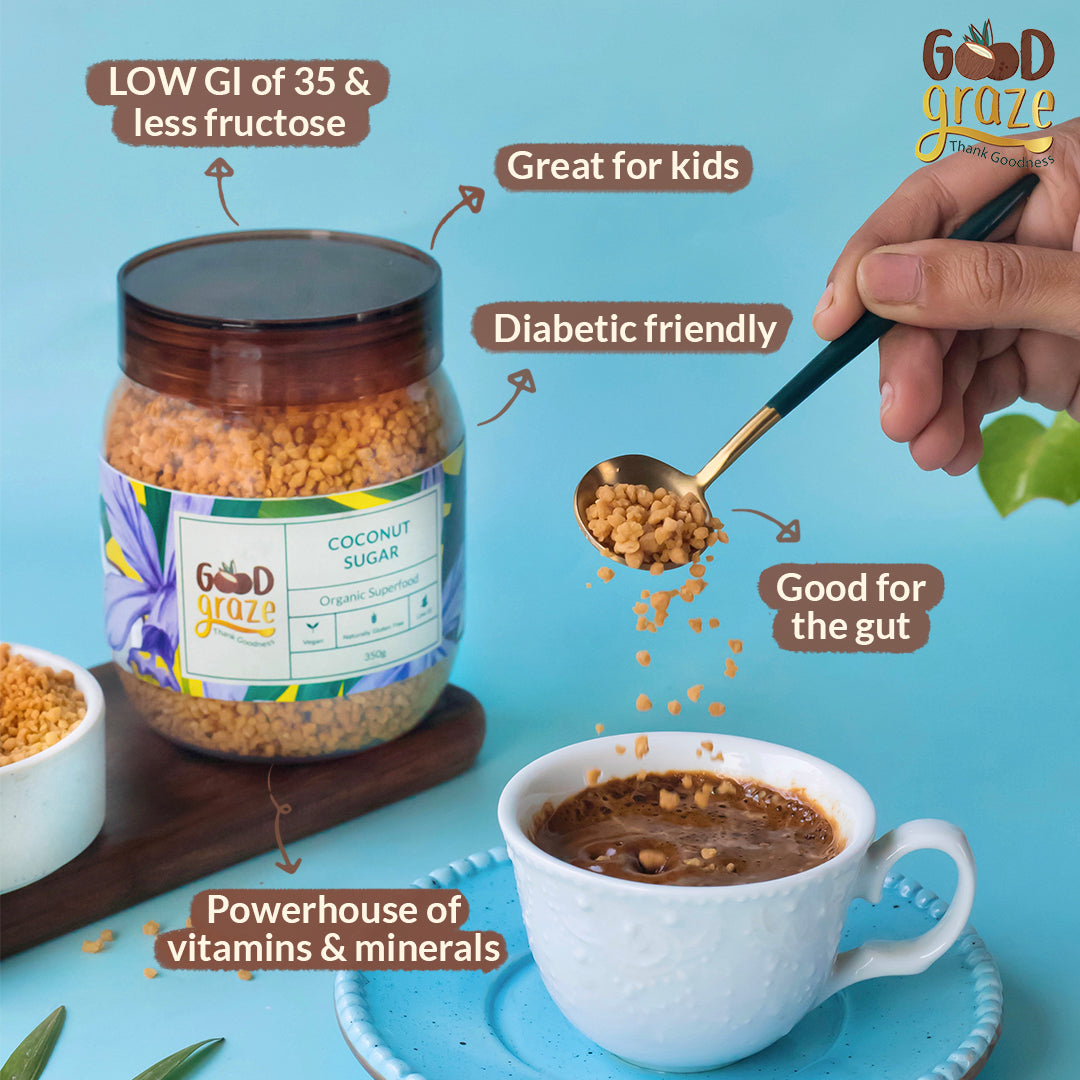- Is coconut sugar really made from coconuts?
Contrary to what the name suggests, coconut flesh is not used to make coconut sugar. Instead, the coconut sugar is made from coconut flower sap.
- What’s the process?
Coconut sugar is made in two stages. The coconut flower sap is first collected. The sap is then slowly boiled uniformly until the majority of its moisture has evaporated. As a result, the sap is dried, and it subsequently crystallizes into sugar granules.
- What are the other names of coconut sugar?
Coco sugar, coconut palm sugar, coco sap sugar, or coconut blossom sugar are some of the other names for coconut sugar. Please note: Palm sugar is not the same thing and is often confused when used in labeling.
- How does it taste?
A lot of people assume that it tastes like coconuts, which isn’t true at all! Coconut sugar has a flavor that is equivalent to brown sugar with notes of caramel.
- What are the benefits?
Answer: The benefits of coconut sugar include:
Low glycemic index: Majority coconut sugars have a glycemic index of 35, which is lower than that of normal sugar.
Good for the Gut: Has inulin, a natural prebiotic fiber that lessens the sugar high and crash, slows down the absorption of glucose, and maintains the gut content.
Rich in antioxidants: As it is merely dried sap, which is regarded as a raw food, it preserves all of the beneficial antioxidants present in the original source.
- What is the recommended use of Coconut Sugar?
You may substitute coconut sugar for refined sugar in a 1:1 ratio. It works great in baked goods and may also be used to sweeten teas, coffees, lemonades, smoothies, and other beverages of your choice. It can also be used to balance out and enhance the flavors of savory dishes. Coconut sugar can be used as a natural scrub and overcome a variety of skin problems.
- Does coconut sugar work with beverages?
Absolutely, coconut sugar blends beautifully with your preferred hot and cold beverages. Works great with milk, tea, and coffee.
- How much sap is required to produce coconut sugar?
2 liters of sap on an average yields one 350 grams of coconut sugar! That’s the amount of sap a good quality tree can give per day in ideal conditions!
- Can diabetics use coconut palm sugar?
Diabetes patients should use caution when ingesting any sugar, including coconut sugar. If they choose to include sugar in their diet, they should do so sparingly and take into mind the calories and carbohydrates it includes. It’s always advisable to consult with your doctor as every patient’s case history is different.
- Why is it better than sugarcane jaggery?
Answer: Although jaggery has a better nutritional profile than refined sugar, it is still heavy in calories and has a high GI. Since coconut sugar has a lower GI and contributes important nutrients, it serves as a significantly better option than jaggery. Coconut sugar may be consumed all year round, however excessive jaggery consumption during the summer months might induce heat in the body and is not advised. Excessive intake of jaggery can cause difficulties in bowel movements, freshly made jaggery can induce indigestion while Coconut sugar is a plant-based, anti-inflammatory sweetener, that has a low-glycemic index, meaning our bodies absorb the sugars at a slower pace. Also, it is abundant in amino acids, which assist our metabolism.

